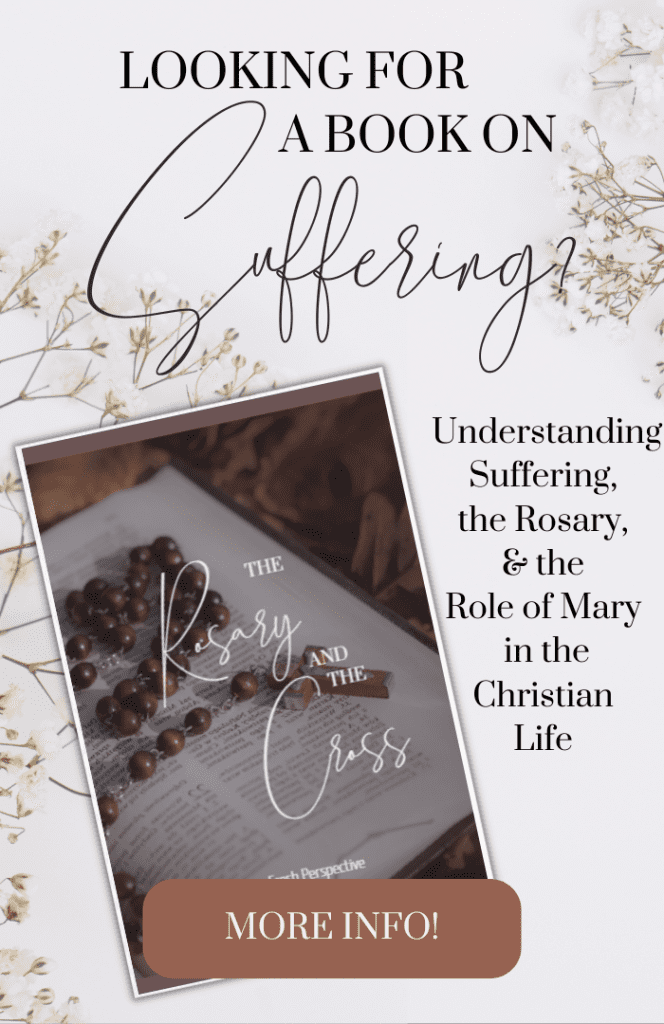Sources of Grace – Christian Life of Grace Series Continued…
In my last post in this series we talked about what Grace really is (and how it has been distorted), and that while it is all around us, much like oxygen, we still need to tap into it ever more fully and more deeply in order to truly use it to its full potential. Just as an athlete learns to breathe, we need to learn how to recognize, and respond to Grace in order to run this race and at the end be able to say with St. Paul,
I have fought the good fight; I have finished the race; I have kept the faith. – 2 Timothy 4:7-8
Quick Recap – What is Grace?
Grace is not the same as mercy or compassion. It is not love, nor arbitrary favor, but rather practical and tangible Divine Strength that enables us to be the people we are meant to be. And, most importantly, we cannot give it to ourselves!
By its very nature, Grace is a divinely bestowed gift, readily available at all times in infinite measure, that helps us to recognize that we are not alone and that, truly, when we learn to tap into it well:
I can do all things through Christ who gives me strength – Philippians 4:13
Sources of Grace
This post is meant to be eminently practical so I am going to just dive right into the nitty gritty.
# 1 – Prayer
The first source of Grace is pretty obvious (I should think). God well never deny any Grace sincerely requested in prayer.
If you remain in me and my words remain in you, ask for whatever you want and it will be done for you. – John 15:7
God’s criteria for answering prayer is that it serve the purpose of all creation, which is eternal happiness with Him.
Experiencing Grace gives us a tangible experience of God, enhances our understanding of and appreciation for who He is, and makes us desire Him more completely. Experiencing Grace gives us a taste of what we were made for and makes us yearn for it all the more. It increases our dependence on God, and our trust in God, plus it makes us better people and helps us to live the caliber of life He has called us to right now.
Why wouldn’t He want you to have more of that!?!
But Why do we have to ask?
Its simple. God could just shower us with everything and make our lives heaven without us having to even think about Him, but that wouldn’t serve the purpose.
He desires to have us desire Him.

Allowing us to experience our need for Him is the first step for us to recognize our desire for Him, and it gives us the opportunity to exercise our free will, to choose to cooperate with God or do life alone. Because ultimately, that is the choice. Do I want God or not?
# 2 – Fasting
My 7 year old son astounded me the other day on the way home from church. He said thoughtfully, “Mama, I like fasting. Wanna know why?” Of course, I was intrigued as to what a 7 year old could POSSIBLY have to say about such an advanced topic so I was instantly attentive. “Because”, he said, “When I eat, I’m only as strong as what I eat, and when I fast, I’m as strong as God”.
Talk about mindblowing!
I turned to catch my husband’s surprise with equally raised eyebrows, both of us astonished at the simplicity and the truth that had just come from the heart and mind of our son. I’m sure my mouth must have been open as his words burned themselves into my memory.
Fasting is a challenging and often misunderstood discipline that is not even close to the secular idea of dieting. It is absolutely critical to developing a vibrant and fulfilling spiritual life. I would even venture to say that without fasting it is IMPOSSIBLE to grow in the spiritual life and, if you are feeling stagnant or bored in your relationship with God, this is more than likely your next right step. I highly recommend it (as long as you approach it from the correct perspective).

If you are interested in beginning fasting, check out my series on this topic.
#3 – Mortification
Don’t freak out.
This is just an old-fashioned and scary word for a sort of spiritual “workout”. Yes, it literally means to “put to death”, which in its own right sounds repulsive and terrifying, but let’s just give it a chance, and some perspective.

The funny thing about this one is that you need grace in order to do it… but that’s precisely the beauty. This is training! Again with the athlete analogy, mortification is the runner learning to breathe in short training runs before he attempts the actual marathon. This source of Grace is particularly practical because it is about tapping into grace in little things “out of the moment” so that in the moment you really need serious grace to handle something bigger, you will know exactly (or at least better) how to draw upon it.
I am working on a post that goes more deeply into this exclusively – more practical in the why, and what to do (plus, why it is called such an unappealing name). Be sure to sign up to get notified when that one comes out (In the sidebar or at the foot of this post).
#4 – Mary
Grace gives us the strength to do the hard things joyfully. Grace is the tangible sweetness that sustains us when the narrow path up the steep mountain through the eye of the needle feels impossible. It is the motivation, the conviction, the perseverance, the encouragement, the courage, the hope, and the wonder that keeps us going.
Yes, grace is from God, but it has an unmistakably feminine sweetness to it!
This is why we so often confuse it with mercy, arbitrary and unmerited favor, or compassion. It feels doting and personal and it is by far most people’s favorite aspect of the Christian life. It’s also why there is a mini trend (or at least there was, once upon a time) about God being a woman. But, no, God is Father. He is King. He is Lord, Master, and Judge. He loves deeply, passionately, and immensely without limits but His love is also pragmatic, stalwart, steadfast, and focused. Compassion is not the same thing as compromise. This is why God can smite the Egyptians, send the flood, and destroy Sodom and Gomorrah. The people of Nineveh believe, with good reason, that God does plan to destroy their city, and, thus, act accordingly.
But a mother has a distinct, tangible, and “sweeter” way of loving. Without changing the goal, and specifically and compassionately attune to each individual’s heart and need, she always sees original innocence, hope, and possibility. She is the queen of second chances, patience, and coaxing. It is her maternal heart that God gave to us as He expired on the Cross with “Woman, behold your son” and “Son, behold your mother” (John 19:26-27). Just as Eve had been physical mother of all the living, now Mary is the Spiritual mother of all the children of God… and with that role comes the role of dispensing grace, this precious and boundless love and favor of God, uniquely, personally, and generously to any and all those hearts who should show a desire or a readiness to receive it.

This topic of Mary and grace is overwhelmingly ginormous and certainly more than we can unpack in this tiny section of a blog post. I invite you to look more deeply into it yourselves, or, if you are barely beginning and you feel like this is too much right now and you aren’t even sure if you believe it, just give it time. Focus on the first 3 steps and you will get there more quickly than you realize.
#5 – Sacramental Life
Here’s where things get super practical, and super “controversial” (In case the last point wasn’t, lol). I’ve been feeling a post series coming on in my mind for a while now called “What does religion have to do with it?” When I started this blog I wanted to stay away from religious terminology and religious affiliation because I wanted my readers to realize that a strong Relationship with God was the primary purpose of calling, even over and above their profession of faith. And I still agree with that. Religion without relationship is pointless, that’s why people are increasingly disheartened by religion, and I don’t blame them one bit…Even religious people and religious leaders are just going through the motions most of the time because they have forgotten the point.
Religion must be at the service of Relationship, never an end in itself, or it just becomes another idol.

Its too much to go into all the explanations here, but I KNOW you have questions, so I will link them here as soon as I can. But meanwhile, what I have discovered is that the TRADITIONAL Roman Catholic Sacramental Life (despite being poorly understood and/or poorly executed in the last 75+ years – not to mention many other major parts of history) has as its SOLE goal and purpose, greater closeness and even UNION with God.
The sole aim and purpose of literally EVERYTHING about the Genuine, Traditional Catholic Practice was and still remains, closeness with our Creator. An attempt to regain the original relationship of Eden before the Fall. An attempt to overcome sin by the power of the Cross that we may be reunited with Him after the curse of our first parents brought division, hardship, and pain into this world.
And it has a toolbox.
It is called the Sacraments. Powerful and intense sources of tangible grace (when practiced with the proper dispositions) that enable us to live “the impossible” – Keep the commandments, enjoy fruitful and joyful marriages as well as deep, peaceful, and meaningful family life, give meaning and purpose to suffering, and experience the intensely powerful and even mystical Relationship with God that our souls were made for. (Note* The article linked above is a good objective intro to the Sacraments but certainly too short to contain all the richness and explanations, if you read it, please be aware that some of the information may be slightly oversimplified)
This is also the purpose of the use of Sacramentals. Much like a photo of someone you love or the flag of a nation, tangible objects acknowledge the fact that as humans we are an inseparable combination of body and soul, that the senses are important and valuable to us, to our faith life, and to our growth in Relationship with the God who made us as we are. The sole purpose of Sacramentals is to give us physical reminders that can be used enliven or deepen our prayer life, remind us of God and His constant presence in our lives, and encourages us to become who we are meant to be.
The traditional and official definition of a Sacrament is:
An outward sign, instituted by Christ, to give grace – (Baltimore Catechism)
or, in other words, a tangible/physical experience, of Biblical origins, for the purpose of receiving the Divine Strength necessary to live the Christian life we are called to.
It is a practical and intensely human way of living the Divine Life – of grafting ourselves physically to the vine and abiding there that His life may flow through us and that we may bear fruit.
Remain in Me, and I in you. Just as the branch cannot bear fruit of itself but must remain in the vine, so neither can you unless you remain in Me. I am the vine, you are the branches; the one who remains in Me, and I in him bears much fruit, for apart from Me you can do nothing.– John 15:4-5 (Read whole passage)
[mailerlite_form form_id=1]


